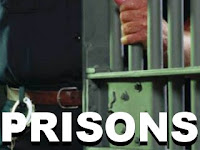 7-15-2009 Maryland:
7-15-2009 Maryland:
Mikulski measure would change 1934 law, fight growing abuses by inmates
Maryland's top corrections official plans to testify today before a Senate committee in support of federal legislation that would make signal-jamming technology legal for use in the country's prisons, where contraband cell phones have become a deadly - and growing - problem.
"We know we are finding more [phones] now, and we think we're keeping more out, but we really don't have a real picture of how many are currently in the system and being used," said Gary D. Maynard, secretary of the Maryland Department of Public Safety and Corrections.
Maynard's department plans to test technologies designed to thwart cell phone use in jails from a dozen vendors this fall. But a communications law passed in 1934 bars interfering with radio signals, including cell phone transmissions. The Senate bill, sponsored by Sen. Barbara A. Mikulski of Maryland, would change the law to allow such jamming with FCC approval.
"All across the country, cell phones are being smuggled into prisons and being used by inmates to communicate with criminals on the outside," Mikulski said in a statement via e-mail. "Just more than two years ago, Carl Lackl, a young father of two in Maryland, was killed after an inmate used his cell phone to order a hit. This is not an isolated incident and it must stop."
Cell phones are smuggled into prisons by the thousands, often by bribed correctional officers, visitors and contractors. They're hidden in food shipments, concealed in body cavities, tossed over prison walls and - in Brazil - flown in by carrier pigeons. Inmates use them to run drug operations, harass victims' families, plan escapes, arrange alibis, pass the time and intimidate witnesses.
To fight the problem, Maryland has increased cell searches and employed detectors, including a chair that can sense metal hidden in body cavities. The state has pioneered a program using search dogs to find contraband phones. But such methods are costly, use a lot of manpower and are not fail-safe, leading officials to look into signal jamming.
"We want to look at that and see what technology is the best," Maynard said.
This week, in an effort led by South Carolina, more than two dozen states and the District of Columbia Department of Corrections submitted a petition to the Federal Communications Commission, which enforces the 1934 law, asking for permission to jam cell phone signals in jails. The FCC has previously denied such state requests as being illegal.
Maryland did not join the petition because it had its own effort under way, Maynard said.
Last month, Mikulski and Gov. Martin O'Malley sent a joint letter to the National Telecommunications and Information Administration asking for its participation in a half-hour demonstration of cell-signal jamming.
"We are not asking that the NTIA ... take a position on the proposed federal legislation at this time," the June 15 letter reads. "We are simply requesting that the NTIA allow this demonstration to occur."
After four weeks, there has been no reply, O'Malley's spokesman said.
Critics say that jamming, which prevents cell phone signals from communicating with transmission towers, is not an exact science and could interfere with emergency communications and other legitimate use. They point to radio frequency detection technology such as that made by ITT Corp. in Columbia, saying it is less expensive and would provide better results.
Others disagree.
Howard Melamed, who sells jamming technology abroad through his Florida-based company, CellAntenna Corp., said he can block signals in specified areas, including a pocket.
"It may not be as beneficial as we think," Maynard said. "But we don't know. We haven't been able to see it tested.
Cell phones in prisons
California: Contraband cell phone collection doubled to 2,800 in 2008.
Kansas: Cell phones were used to plan two unsuccessful escapes.
Massachusetts: An inmate made a threatening call to a medical staff member, trying to get her to smuggle in weapons.
Nevada: An inmate used a cell phone to plan his escape, then committed three home robberies, a kidnapping and car theft.
South Carolina: Inmates used cell phones to steal thousands of dollars through credit card fraud.
Texas: A death row inmate used a cell phone to make a threatening call to a lawmaker.
Washington: Fired correctional officers face prosecution for smuggling phones.
West Virginia: A Hazelton correctional officer was recently indicted for smuggling a phone into a federal facility.
- Maryland Department of Public Safety and Correctional Services. ..Source.. by Tricia Bishop
July 15, 2009
MD- Md. prison official to testify on bill to legalize cell phone jamming
Subscribe to:
Post Comments (Atom)

No comments:
Post a Comment